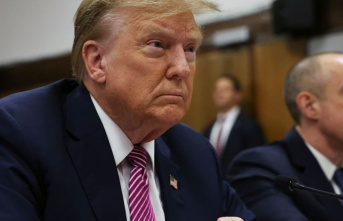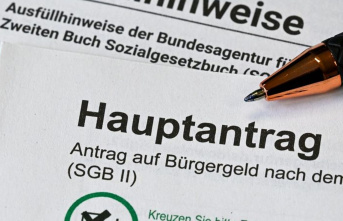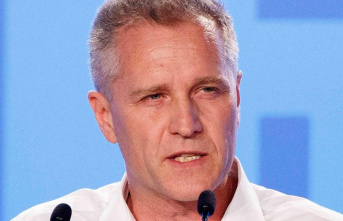In the dispute over judicial reform in Israel, the government and opposition want to continue negotiations in the course of the week. Representatives of the right-wing religious coalition and the opposition met on Tuesday evening for initial negotiations at the President's residence.
The talks ended after about an hour and a half "in a good mood," as President Izchak Herzog's office later announced in Jerusalem. Prime Minister Benjamin Netanyahu had previously postponed the proposed law after massive protests in order to "make room for dialogue".
It was unclear whether a compromise proposed by Herzog a few weeks ago should serve as a basis for the negotiations. Netanyahu rejected the comprehensive proposal as "unbalanced". The opposition backed it.
protests continue
Despite the announced postponement of the controversial judicial reform, the opponents of the government's plans continued their protest. Dozens of people gathered in front of the President's residence in Jerusalem in the evening to protest against the start of the negotiations. In Tel Aviv, there were rallies with hundreds of demonstrators in the afternoon.
With the judicial reform, Netanyahu's coalition wants to curtail the influence of the Supreme Court and expand the government's position of power. She accuses the Supreme Court of excessive interference in political decisions. In the future, for example, Parliament should be able to overturn decisions of the Supreme Court with a simple majority. Critics see the separation of powers in danger and warn of a state crisis if the reform is implemented in this way.
After large parts of economic life came to a standstill on Monday due to a general strike in protest against the reform, normal operations returned on Tuesday. Planes also took off regularly at the international airport.
Biden: No US visit from Netanyahu
Meanwhile, US President Joe Biden put a damper on the prospect of Netanyahu visiting Washington in the near future. When asked whether he would invite Netanyahu to the White House, Biden told journalists on Tuesday: "Not anytime soon." Biden criticized the controversial judicial reform. As a staunch supporter of Israel, he was concerned, the US President said when asked about the state of democracy in the country. "You can go no further this way." Biden later added that he hoped Netanyahu would abandon the judicial reform plans.
Netanyahu replied on Twitter that he appreciated Biden's support. But Israel is a sovereign country that does not make decisions under pressure from abroad, "not even from the best of friends".
The US Ambassador to Israel, Thomas Nides, had previously announced that Netanyahu would be invited to the White House in Washington in the near future. "I think he will be invited to Passover," Nides told Israeli army radio on Tuesday. The Jewish Passover festival begins on Wednesday next week and lasts for a week.
Since taking office in November, Netanyahu has already visited several European countries, including Germany, as well as neighboring Jordan. So far, there has been no invitation from the USA, traditionally the closest ally. Observers take this as a sign that Biden is not happy with the policy of the right-wing religious government.











